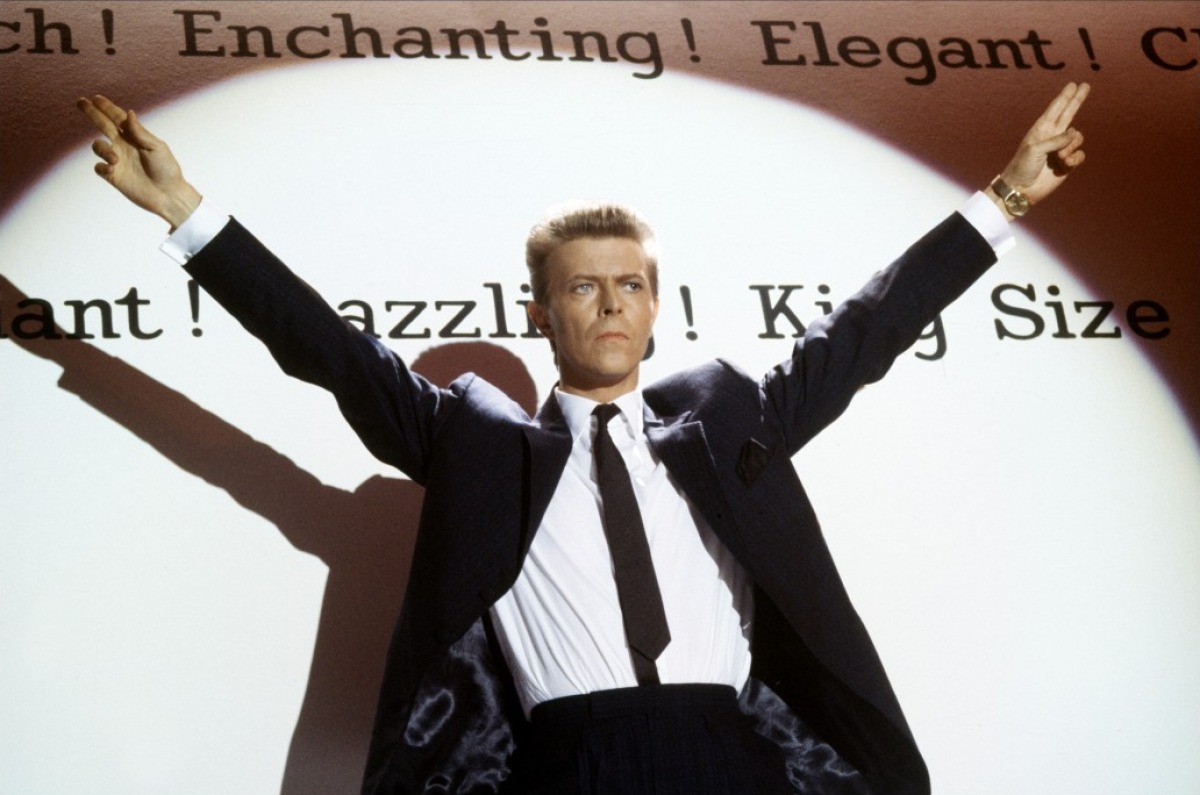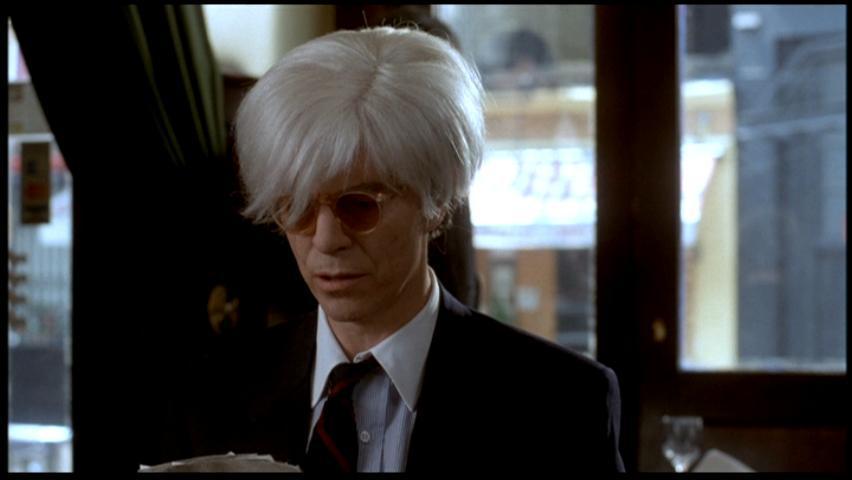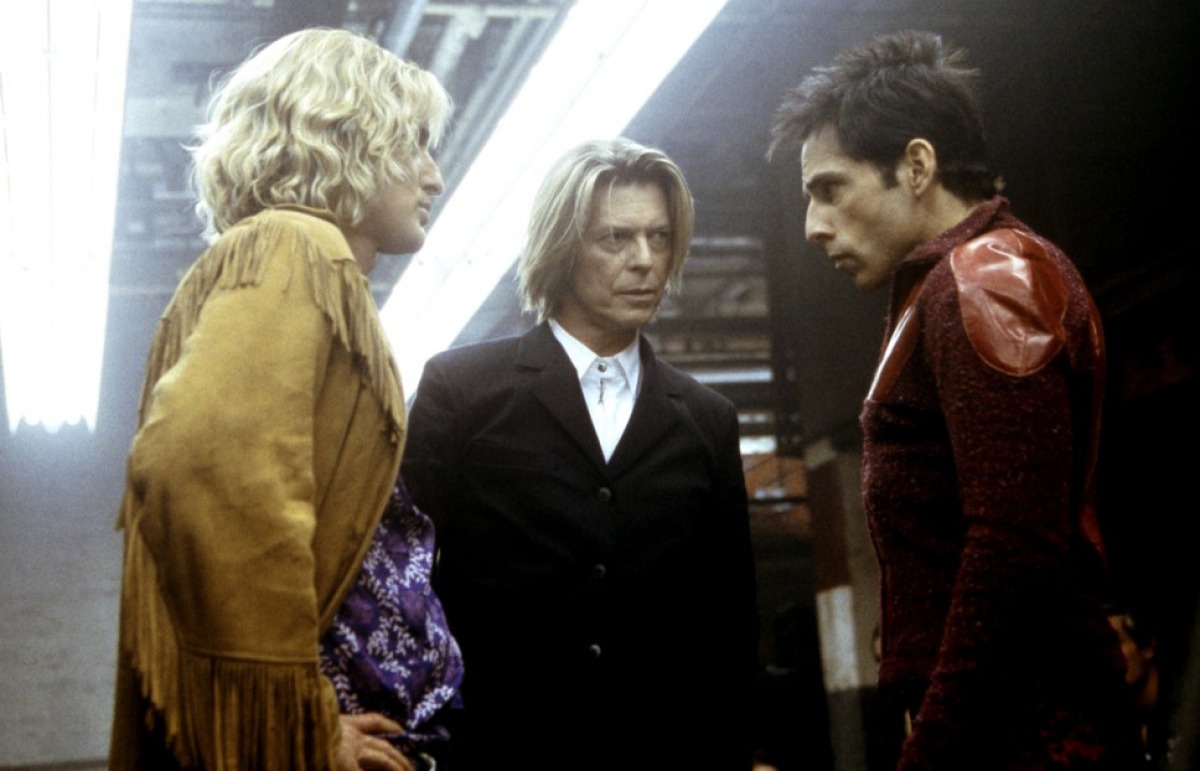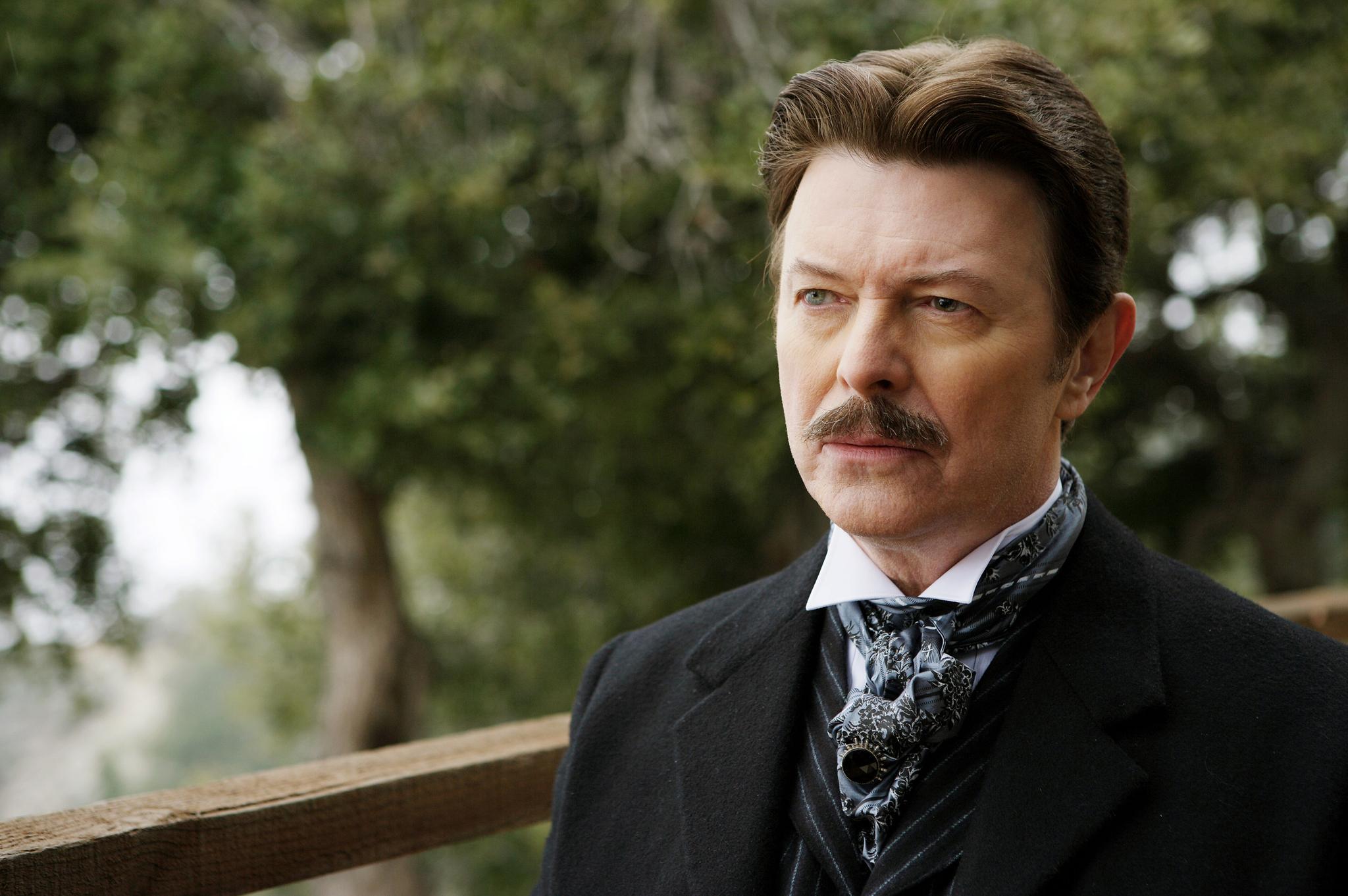6. Labyrinth (1986, Jim Henson)
Another film on this list that was a flop at first, and then became a cult movie, is “Labyrinth”, from puppeteer and director Jim Henson (the Muppets, anyone?). It was supposed to be a musical fantasy film for kids, but if you watch it from a different angle, it is pretty cruel and weird.
Sarah, played by a young Jennifer Connelly, who’ll eventually become a child icon of those years, is a daydreamer and imaginative girl. Bothered by her crying infant brother, she evokes the king of Goblins, one of the characters of her fantasies, to take him away, and so he does.
To save him, she must reach the Goblin Palace, placed at the centre of a magical maze full of tricks and monstrous creatures. Along the path, Sarah meets some magical helpers, who give her support in making it through the labyrinth and reaching Jareth, the King of Goblins. Jareth’s main goal, though, is to convince Sarah to stay with him, forever.
Bowie’s interpretation of Jareth is just perfect. Voluminous hair, iridescent clothes, stretch trousers (with a pretty evident crotch), glam-star shoes, he’s wicked and fascinating just right. He seduces Sarah and tries to corrupt her using her imagination against her, and he almost succeeds in a couple of situations. Needless to say, musical parts are catchy as hell, as Bowie sings most of them.
7. Absolute Beginners (1986, Julien Temple)
In the same year, Bowie appeared as a secondary character in the musical film “Absolute Beginners”, directed by rock-oriented director Julien Temple.
The film takes place in London, 1958, at the bloom of its youth movements. The city is shown as a colourful parade hosted by mods, teddy boys, jazz music and cheerful people. Colin is an amateur photographer, in love with wannabe-model Crepe Suzette.
Suddenly, their paths diverge and go into different directions: despite representing the “new” wave, they end up being corrupted by the old wave; in order to become a model, Suzette marries a creepy old stylist, while Colin becomes the official photographer of his generation, but unwillingly working for the “enemy”. Their stories are just two lines of a more complicated plot that ends in the Notting Hill race riots.
Bowie plays a wealthy men, interested in discrediting the rebellious youth in order to make more money: he hires Colin to do so, and the audition scene is probably one of the bests of this movie.
The movie itself is not a masterpiece, and it was actually one the reasons of the failure and death of its production company. Characters are exaggeratedly stylized, even if they stay within the terms of a musical, and the storyline is non-existent. The film also features one of the most embarrassing covers of all time: “Volare”, sung by Bowie himself. Check it out, if you don’t believe this to be true.
8. Basquiat (1996, Julian Schnabel)
“Basquiat” portrays the story of talented Jean-Michel Basquiat, a former street artist who, discovered by Andy Warhol, experiences a great public success and is soon destroyed by his own fame.
Basquiat is a key figure in the Pop-Art scene, and the first black artist to receive a certain kind of acknowledgement; the film follows his artistic path from his first contact with art (“Guernica” by Pablo Picasso) to the days before his death, when drugs and bad health left him with nothing but money.
It takes its strength in the fact that it is not an hagiography, so that all the characters are represented in their values and faults, with no interest in sanctifying the artists or the agents, shown as greedy snotty kids.
David Bowie plays Andy Warhol, who was actually his friend in real life: his performance is credible and genuine, as he doesn’t back down from representing him in a pretty unflattering way, as he is presented as a man lacking in artistic taste and only attracted to young weirdos.
9. Zoolander (2001, Ben Stiller)
Not being a great fan of Ben Stiller, that is to say that “Zoolander” is one of his most successful films and, probably, one of the funniest comedies of the last twenty years.
What makes it so funny is the absolute vacuity that is cruelly associated with the world of fashion and the incredible amount of funny-placed cameos.
Derek Zoolander is a dimwit male model: his life is smooth-running and shallow, until the newcomer model Hans wins the Male Model of the Year award. Derek is wrecked, but when fashion guru Mugatu hires him he sees in him a chance for revenge, until he finds out that Mugatu’s real intentions are to brainwash him and use him as a weapon against the Prime Minister of Malaysia, who made impossible for Mugatu to produce his clothes using child labour.
Bowie plays himself in a tiny cameo, as the judge of the walk-off between Derek and Hans, when the latter wins thanks to his ability to take off his underpants without removing his trousers. His absolute coolness and elegance clashes with the ridiculousness of the scene, making it extremely funny.
10. The Prestige (2006, Christopher Nolan)
Between the first Batman and its very successful sequel, in order not to give Christian Bale too much rest, Nolan pops out this gem about magic shows at the end of the nineteenth century.
The film focuses on the rivalry between two illusionists, former colleagues, who try to impress their public (and eventually steal it from each other) using more and more elaborate tricks. In the background, the figure of Nikola Tesla, real-life inventor and gone into history as a “mad scientist”, played of course by an aged, calm and collected David Bowie.
Magic, actual (and fictional) technology and mystery work together in the making of a solid, great film. The conflict between Angier and Border is symmetrical to the one between Tesla and Edison, where the second is a prefiguration of the first.
Angier is overwhelmed by his own ambition; his hatred towards Border is so strong that he can’t accept him to be just a magician, he confers him supernatural powers in order to justify his impossible tricks. He reaches out for Tesla because he’s convinced that only though innovative experiments he’ll be able to overtake his antagonist – and he will, eventually, with tragic consequences.
Tesla is the perfect figure to be embodied by Bowie: he is traditionally associated with the world of alchemy, mystery and otherworldly powers. His performance is elegant and plain scary, when it comes to the point. This is one of his last film roles.




